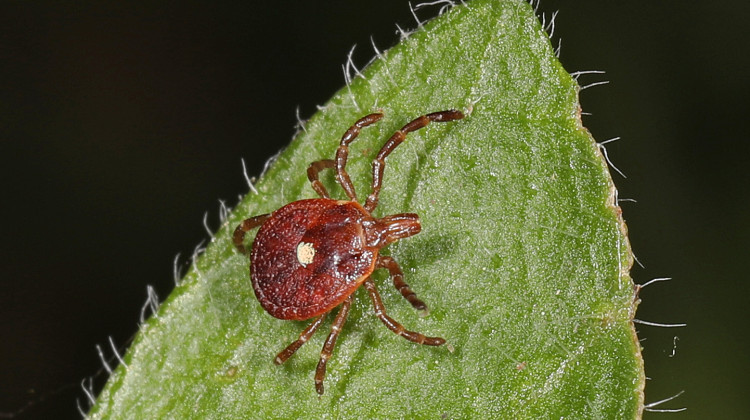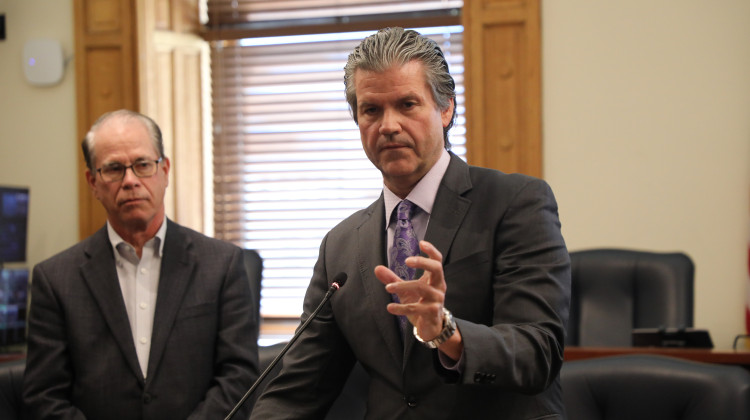
Supplies for Marion County's new mobile syringe exchange program, which will syringes as well as testing, immunizations, naloxone and treatment advice.
Jill Sheridan/IPB NewsIndiana’s ninth syringe exchange program was launched in Marion County.
A sharp increase in the number of hepatitis C cases related to intravenous drug use led Marion County to seek a syringe exchange program. The new mobile unit will offer syringes as well as testing, immunizations, naloxone and treatment advice.
Claire Fiddian-Green is the President and CEO of the Richard M Fairbanks Foundation, which provided nearly $1.5 million for the unit. She says opponents often claim these programs lead to more drug use.
"But the evidence shows just the opposite," says Fiddian-Green. "Syringe service programs help reduce the risk of disease, prevent overdose deaths and divert criminal justice involvement."
This sort of program was first used in Scott County, Indiana, after an HIV outbreak related to opioid injections.
State Health Commissioner Dr. Kristina Box says that opened a door.
"Every Indiana county today has the option to establish a syringe exchange program," says Box.
The unit will operate two days a week at two locations in Indianapolis. Box says these initiatives have been proven to help reduce the harm associated with substance use disorder.
"At the Indiana State Department of Health we’ve seen how important a syringe service program is to halting the spread of disease in a particular community or in a county," says Box.
Studies find people who use exchanges are also more likely to enter treatment.
This story was produced by Side Effects Public Media, a news collaborative covering public health.
 DONATE
DONATE










 Support WFYI. We can't do it without you.
Support WFYI. We can't do it without you.